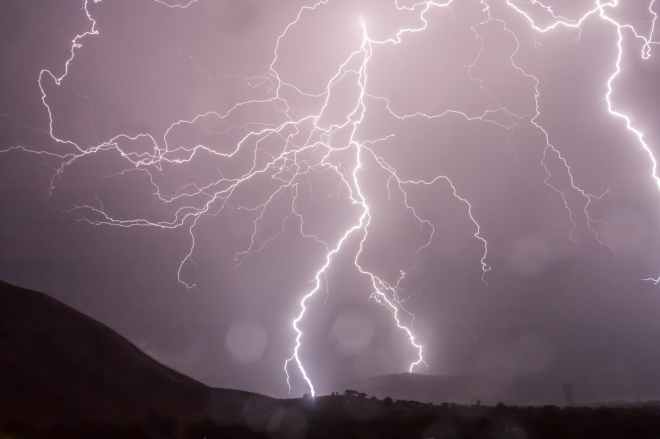Are you afraid of spiders? If not you probably know someone who is.
But think about the process of being scared, how long is there between spotting that spider and letting out a scream or fleeing the scene quickly?
Firstly you need to see the spider, then your brain has to sort through the endless number of things you can recognise in order to identify it as a spider. Then it has to ignite the connection between a spider and fear, once your mind has decided that you need to be afraid it then has to start sending messages to various parts of your body, increasing your heart rate, pumping fight or flight hormones through your body and, not least, preparing your lungs and vocal cords for that scream!
All that happens in an instant.
It is, of course, a survival instinct. If, for example, you entered your bathroom and were faced with a ravenous human-eating tiger sitting in your bath licking its lips expectantly, then that instantaneous reaction to flee could be life-saving.

The point here, however, is that we often find ourselves in emotional states that have been triggered at lightning speed, and because of that instinctive reaction we can find ourselves feeling fearful, sad, angry or frustrated without fully understanding why. Then, if we don’t fully understand what has caused us to enter that emotional state, the state intensifies. If we start feeling afraid for no apparent reason we become even more fearful, sadness triggers even more sadness, we feel angry at ourselves for feeling angry for no reason etc.
Then our emotional state begins to effect things we are trying to do or those around us. Imagine a state of sadness comes over you on your way to work, how would that sadness impact on whatever it is you do? You would probably be less enthusiastic, slower and lose concentration. Those around you would also be affected as you would be less engaging, less talkative and probably give off an air of “I really don’t want people around me right now”.
We need, sometimes, to stop, pause and think about what is happening to our minds and bodies in order to prevent those unhelpful emotional states taking over our lives.
Firstly, obviously, is learning to recognise the fact that we have entered an unhelpful emotional state.
That lightning speed at which our minds work at a sub-conscious level means that we can find ourselves in an unhelpful state without us consciously being aware of it straight away, if at all. It is, therefore, useful to sometimes stop and reflect upon our mood, our emotions and how we feel.
However to spend too much time inwardly contemplating is incredibly impracticable. We need to move forward in our daily lives yet if we take a moment or two every so often to check on how we feel can help us move forward.
For example, take a brief pause before you make a transition in your day, we all have points in the day where we move from one thing to another. That point where go from travelling to work and entering the workplace, think about how you are feeling – is your heart still racing from that point where another driver came perilously close to hitting you? Are you still seething because your train was late yet again because of some lame excuse the rail company gave out? Or that point when you return home from your weekly shop, is that frustration of being stuck behind the world’s slowest checkout operator serving the world’s slowest customer still coursing through you?
By taking the time to recognise those emotions it helps us to start too eliminate them from whatever it is we are doing next.
Then when we do have a bit of time to ourselves we can go deeper into our emotional states, especially those that happen without us really knowing the cause. What triggers that feeling of fear? What caused that random feeling of sadness? What exactly made you feel so frustrated with life?
By forcing some of those unconscious triggers in to our consciousness we bring them under more control. We may not be able to remove them immediately nor can we guarantee that they will not produce the same instantaneous reaction but by being more aware they exist we can control the effect a lot sooner.
You are an amazing person with a mind that works like lightning, however, just sometimes, that speed trips us up. When we learn to reflect on those times when unhelpful emotional states impact on our daily lives, we may still trip but hopefully it will be a stumble rather than falling flat on our face!

One thought on “Lightning Reactions”